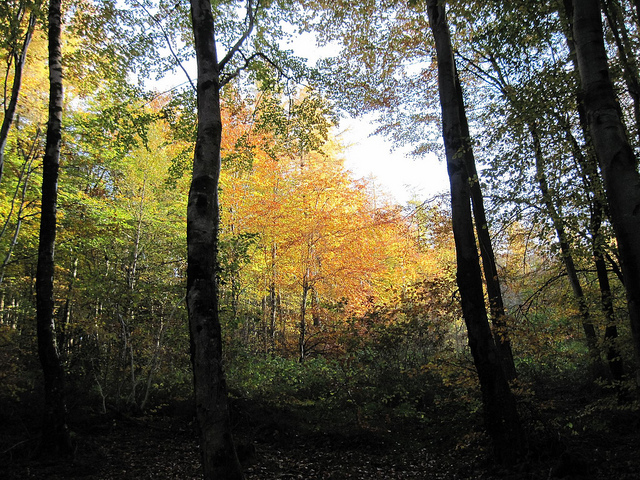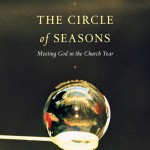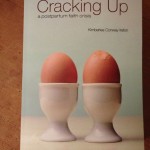
4
O God bow down Thine ear and hear—O hear—
For Thou alone may save. My Castle, Crag,
Defense, O draw me out the net—this fear
That stalks my soul and doth my body drag
Down heavy, pulled like tides by moon to drown
In darkness of iniquity&mbdash;consumed.
Reproached, avoided, burned by friends’ cold frowns
And broken like a vessel ocean-doomed
I toss upon grey waves. No shore is near—
No one but Thou. Have mercy! Take my part—
O save my salt-soaked soul—’tis sere and seared
And Thou alone may slake my charrèd heart,
May tabernacle me on foreign sands
Wandering, afraid, alone—into Thy hands.
—E.B., 1818
Maggie’s days fell into a rhythm—mornings she spent with Gram, sorting through Helen’s belongings; after lunch Gram rested and Maggie went outdoors to walk through the fields or sit and stare at the river or read E.B.’s sonnets. She kept them with her always—E.B., whoever she was, seemed a kindred soul. She had known shame and suffering—and though Maggie did not quite feel she could consider herself to be suffering, she knew enough of shame and regret to find her current situation painful, at best.
Often on her jaunts she ran into James and walked with him, quoting Stevenson at him and learning the various landmarks they passed and how to tell a Leicester sheep from a Ryeland.
In early October the sun-warmed days turned misty and damp, but most afternoons Maggie simply donned her boots and jacket and tramped through the rain and mist, just to be out-of-doors and not breathing the dust that shrouded her great-grandmother’s house. One afternoon, mist shrouded the hills thicker than the dust indoors, but Maggie had to get out of the house. She and Gram had quarreled, and she needed air and space and rain on her face. She walked away from the river, toward town, where she thought she would be less likely to run into James; she needed solitude.
Over lunch Gram had asked, not for the first time, what Maggie’s plan was, and Maggie, once again, said she didn’t know. “You’re going to run out of time if you wait too long,” Gram had said, and Maggie had snapped, “I know that! Do you think I don’t know that? Do you think I’m not aware every single day that my life has changed forever and that I need to decide what I’m going to do about it?”
The silence after this outburst had been excruciating. Maggie couldn’t even finish her sandwich. She took it to the kitchen and left it there while she put on her jacket and boots and stormed out into the mist.
Gram was right, of course. She had to think about the future, figure out what she was going to do, but thinking of the future made her think of the past, and she desperately longed to forget the past, forget her foolishness in believing Brian had loved her. Would he have married her at all? Or had she been fooling herself in that, too?
She reached the edge of town and skirted it, keeping to the fields. Through the mist she saw a faint blur of yellow at the top of the next rise. A stand of birches, perhaps. She tromped toward it and thought of their final conversation, how she’d dreaded telling him over the phone—she’d wanted to see his face, wanted him to see hers—but what else could she do when he was in Georgia and she in Spokane? She remembered how she’d told him she was pregnant, how there was a long and awful silence, how she’d said, “Brian?” and he’d said quietly, “This wasn’t in my plans, Mag. Isn’t there—you know—can’t you do something about it?” Those were almost his last words to her; he never called again, was always “out” whenever she called him, and never returned her calls. Part of her was almost glad; it made it easier to vilify him, to feel justified in hating him. After her tenth—or maybe it was the twelfth—phone call, she’d given up. He went off to Yale Law in the fall; she came here. She had no reason to think she would ever see him again.
And to think she had loved him! How could she have been so blind, so stupid? She vacillated between hating him and hating herself. She called him the vilest names she could think of. Many times. And called herself quite a few at the same time. But all the name-calling in the world wouldn’t change things.
The mist turned to rain. She felt it fall on her face as she reached the top of the hill and passed through the birches, their yellow leaves the only color in sight, dropping silently onto the sodden ground. The fields were a grey and misty blur. She wasn’t even sure where she was. She didn’t care and, leaving the birches behind, kept walking.
She’d read enough books to know that if she didn’t let go of her anger and hatred, she’d end up bitter and poisoned like Miss Havisham—surrounded only by her own moldy memories—all of them galling—and poisoning the souls of everyone around her, not least this child that now grew in her womb.
No, she would not choose that path. But how? How not to choose it? How to live without anger, without bitterness? How to choose joy and life and love in the face of rejection and betrayal? How did one do that?
She reached a stone wall and found she didn’t have the strength to climb it, so she stood beside it, staring out across the rainy grey fields, lost to all but her swirling thoughts.
“Maggie!”
She started at the sound of James’s voice, right beside her. Rain sheeted down the hood of his jacket.
“You’re soaked through!” he said.
“Am I?” She looked down. Sure enough—her jacket was soaked, her jeans were soaked, even her boots were soaked. She hadn’t noticed. She felt inside her pocket. E.B.’s sonnets were still there, but whether it was the pages or her hand that was wet, she could not tell.
James looked concerned. “Are you unwell?”
She shook her head. “No. No, I’m fine. Really. Just—distracted—is all.”
James grinned. “Must be some distraction to make you oblivious to rain like this.”
“Yes. Yes, it is.” She stared through the grey air and suddenly felt cold.
“Come on,” James said kindly, and offered her his arm. “I’ll walk you home.”
She felt fuzzy-headed and a bit dizzy. Everywhere she looked was grey. It seemed to take a long time to get back to the cottage. When they finally reached the gate, darkness was falling, and Maggie could hardly move her legs. In the dusky grey light, she noticed a bedraggled plum arcing its baring branches over the path to the door. Its leaves lay scattered and dingy on the pebbles of the path. As James lifted the latch and opened the gate, Maggie remembered E.B.’s fourth sonnet—“glad hand to latch”—and realized with a momentary lift of her heart that E.B. had come here in her distress—to Helen’s house. She stumbled and gripped James’s arm to right herself. E.B.’s “kind unknown kin” had lived here! It was here that she had found shelter and welcome and compassion.
Firelight shone in the leaded panes of the windows beside the door. James escorted her up the walk—propelled her, really—his hand on her elbow.
“Lily?” he called to Gram as he opened the front door.
“I’m fine, James, really,” Maggie said, even as she felt herself sag dizzily against him.
Gram came into the room. “At last!” she exclaimed. “I’ve been worried sick!”
“She needs tea,” James said. “And dry clothes. And something to eat.”
Gram grabbed a blanket off the nearest chair and wrapped Maggie in it. “Thank you, James,” she said as she led Maggie to a chair by the fire and sat her down. The door clicked softly closed behind them as James slipped back out into the falling night. Maggie began to shake. She felt so cold. A sudden sob erupted from somewhere deep inside, and she realized she had not cried, not once, since the day she last talked to Brian. The tears came hard, and she let them, sobbing into her hands as Gram held her and stroked her wet hair and whispered, “Sh. Sh. It’ll be all right. All shall be well, Maggie. Sh. All shall be well, dear. You’ll see. All shall be well.”
Photo by Joysaphine, Creative Commons via Flickr.

